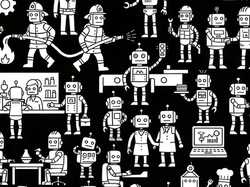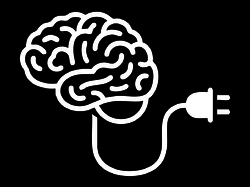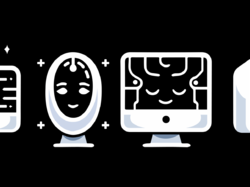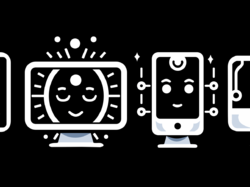“Artificial intelligence” is broadly used in everything from science fiction to the marketing of mundane consumer goods, and it no longer has much practical meaning, bemoans John Pavlus at Quartz. He surveys practitioners about what the phrase does and doesn’t mean:
It’s just a suitcase word enclosing a foggy constellation of “things”—plural—that do have real definitions and edges to them. All the other stuff you hear about—machine learning, deep learning, neural networks, what have you—are much more precise names for the various scientific, mathematical, and engineering methods that people employ within the field of AI.
But what’s so terrible about using the phrase “artificial intelligence” to enclose all that confusing detail—especially for all us non-PhDs? The words “artificial” and “intelligent” sound soothingly commonsensical when put together. But in practice, the phrase has an uncanny almost-meaning that sucks adjacent ideas and images into its orbit and spaghettifies them.
Me, I prefer to use “machine learning” for most of the algorithmic software I see and work with, but “AI” is definitely a convenient (if overused) shorthand.





